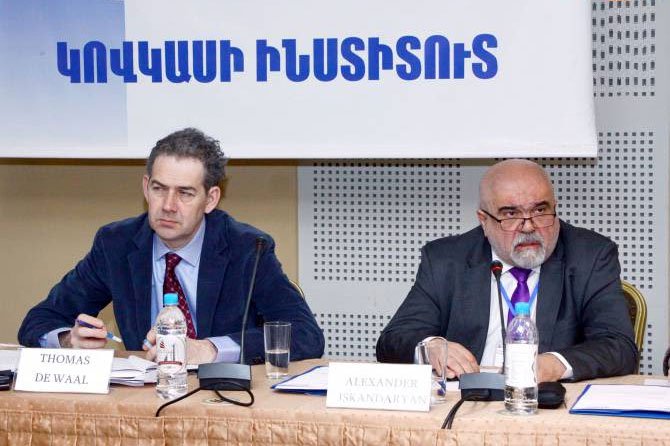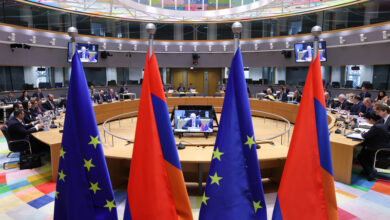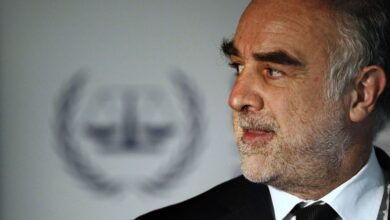Thomas De Waal: No major geopolitical contestation in Karabakh conflict

Unlike other post-Soviet conflicts there is a political equilibrium in the Karabakh conflict, says Thomas De Waal, senior fellow with Carnegie Europe.
“There is no major geopolitical contestation in this conflict,” Waal said at an international conference in Yerevan on “Prospects of Peace in Nagorno Karabakh.”
According to him, the major powers are more interested in their bilateral interest with Baku and Yerevan rather than resolving the conflict
“The same applies to Russia. Russia’s main interest in this region is not based on this conflict, it’s based on its relationship with Baku and Yerevan.”
He said “there is a remarkably strong consensus between the United States, Russia and Europe on how this conflict should be resolved.”
He stressed that there is ambiguity on the Ngaorno Karabakh status issue, there’s no clear international stance on what the final status should be.
According to the expert, there is much more diplomatic information war around this conflict. “We see Armenians and Azerbaijanis arguing endlessly about historical issues and legal precedents. This is perpetuated by the ambiguous status of Nagorno Karabkh.”
He said Yerevan and Baku are cautious in making concessions because fashions change regarding the issue of secession.
“The instinctive attitude in the world is that secession is a bad thing, but we also have exceptions here. We can name Eritrea, East Timor, South Sudan and, of course, Kosovo recognized by most of the major Western powers.”
“I think the Kosovo precedent had major effect in inspiring the Armenian side not to give up on the sovereignty issue,” Thomas de Waal said.
He said fashions have changed in a different way since 2014 in Crimea. The fashion is now to talk much more strongly about territorial integrity. “We see routine statements by Western leaders about territorial integrity of Georgia and Ukraine. This, in turn, has inspired Azerbaijan.”
“This was indeed a major issue at the Eastern Partnership summit, where Azerbaijan wanted the territorial integrity in the final statement, in the end the final statement.”
In this situation where fashions change it is not surprising that the sides take the “wait and see” attitude to see how the international stance on the final status changes.








